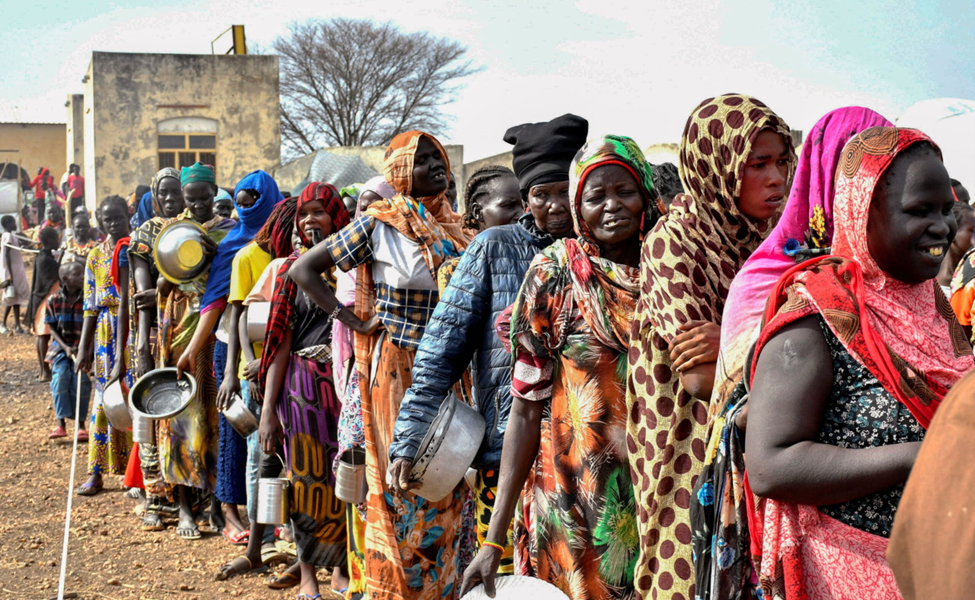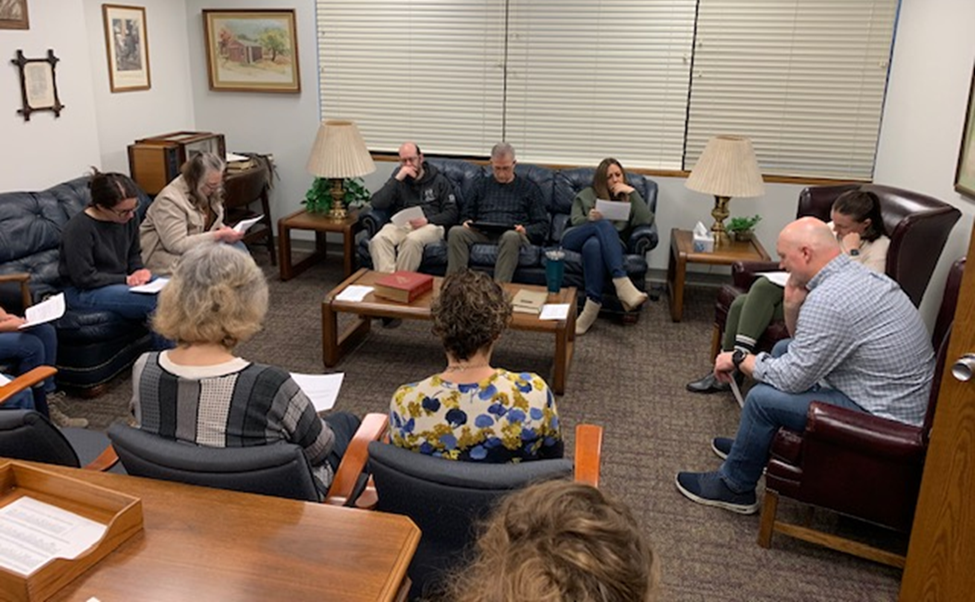
A Decline in Reading?
February 3, 2025THF Weekly Briefing – 2/3/2025
Is reading on the decline?
This morning’s Breakpoint article was all about the alarming trends in the number of students, even in elite universities, who don’t (or even can’t) read books or comprehend what they do read. A column in The Guardian last year bemoaned the decline in reading for pleasure among people of all ages but particularly children in the UK. Data from the National Endowment for the Arts seems to indicate a similar trend in the US. People are reading less, at least in the Western world. Is this a problem?
Because we’re a publishing company, we at Tyndale would obviously say yes, it is a problem! If it’s true. The question is, are people really reading less?
What’s interesting is that globally, literacy rates have been on the rise for decades. According to Max Roser at Our World in Data, worldwide literacy has risen from just 10 percent in 1820 to over 90 percent today. Many countries have literacy rates of more than 95 percent. In our hyperconnected world, where just about everyone has access to the internet, that statistic probably isn’t too surprising.
Research done by Tyndale House Foundation partners in recent years seems to bear this out. Four of the 17 findings from THF’s Africa Leadership Study have to do with books and reading, with a third of respondents from African countries indicating they had read at least six books within the past year. Africa Speaks, another THF program, is aimed at equipping and resourcing African publishers to meet the literary needs of people in local contexts through indigenous writing and publishing. This wouldn’t be necessary or even possible if there weren’t an observable demand for books. Reading does not seem to be declining in Africa, at least.
A much-publicized Wall Street Journal article from October 2024 made much of the fact that Bible sales jumped 22 percent last year, a statistic reflected in sales of the New Living Translation and other Tyndale Bibles along with healthy sales figures industry-wide. If there’s any correlation between people buying Bibles and people reading Bibles, it seems that Bible reading is not only doing okay but maybe better than ever. That’s good news for Bible publishers!
At the same time, we don’t want to bury our heads in the sand. If there’s a problem brewing with people—especially younger generations—not reading, we need to be aware of it and start thinking about ways to reverse the trend.
And this isn’t just an issue for the publishing side of Tyndale; reading trends affect the Foundation’s work too. Global literacy rates have a direct impact not only on Bible sales but on Bible-related ministry activities like translation. We’ve seen an increase in the number of grant proposals in recent years focusing on creating audio Bibles for people groups where written language either doesn’t exist or isn’t a cultural value. This despite the fact that literacy rates are on the rise. It makes me wonder: is it better to create innovative new ways of interacting with Scripture in audio form, or is it better to focus on literacy programs that teach people to read? Probably the answer is both, and we have partners working on reading and literacy programs and dictionary development as well as audio Bibles.
Books and reading have always been an essential part of the Christian life. For centuries, the only book most people had was the Bible, and children were taught to read using God’s Word even during times and in cultures when translating and printing the Bible in languages that regular people could understand was illegal. It would be quite the terrible irony if, now that Bibles are so readily available in nearly every language and now that people have access to such a huge variety of other reading material, we lost the desire to make use of the literary resources now available to us. May it never be!
Here’s what’s happening.

Religious Persecution Rising in Europe
We hear a lot about attacks against churches and Christian communities in places like Nigeria and the Middle East, but religious persecution directed against Christians is increasingly an area of concern in Europe, too. The Observatory on Intolerance and Discrimination against Christians in Europe, a research group based in Austria, recently released a report documenting 2,444 anti-Christian hate crimes across 35 European countries in 2023. Many, but by no means all, of these attacks were perpetrated by radical Muslims who have immigrated to Europe from other regions, and far-left governments seem increasingly inclined to turn a blind eye to attacks against Christians or churches. Tyndale House Foundation has several partners in Europe that are ministering to immigrant communities. One group I won’t name here is working to plant churches among expats from Muslim backgrounds in cities like Rome and Istanbul. Another organization works with children from Muslim families in France. By showing Christ’s love to people from backgrounds that might otherwise be antagonistic to Christians, these partners are living out Jesus’ instruction to turn the other cheek (Matt. 5:39) and creating bridges between communities that will hopefully result in a decrease in anti-Christian persecution in future years.

More Collaboration among Foundations
One of the main focuses at last year’s global Lausanne Congress in South Korea was collaboration—finding ways for ministries to work together in service of the Great Commission. I’ve been encouraged by the number of organizational leaders I’ve spoken with in the last couple of months who have begun to heed this call. Foundation leaders are no exception. Last year, ten foundations (including THF) worked together to provide significant funding for refugee communities in Lebanon. Last week, many of those same foundations were represented on a Zoom call with a number of organizations THF already partners with that are working among refugees from Sudan. You’re probably aware of the ongoing conflict in Sudan that started in April 2023 and has led to over 150,000 civilian deaths and nearly 9 million people displaced from their homes. This is a humanitarian catastrophe that has already resulted in massive food insecurity for more than 25 million people with no end in sight. By working with established ministry partners, mostly based in Egypt, who are already ministering to the physical and spiritual needs of Sudanese refugees, this collaborative group of foundations hopes to make an impact in caring for these significant needs. Please pray for wisdom in knowing the best approaches and for success in working together for the sake of those who have been so devastated by the war in Sudan.

Hope in Afghanistan
A recent opinion piece published in the UK magazine Premier Christianity is titled “Secret Believers: Why Afghanistan’s Tiny Christian Population Is Growing.” Written by a pseudonymous researcher working with Open Doors, the article describes how some Afghani refugees who fled the country when the Taliban took back control in 2021 have encountered Christ while sojourning outside the country and are now going back to take the gospel to Afghanistan despite significant risk of persecution, imprisonment, and even death. The author writes, “These new believers are forming tiny, secret communities across Afghanistan, much like the early church did in the first century. These communities are fragile, often consisting of just a handful of people meeting in secret, but they are growing.” The article is not heavy on documentation, perhaps because of the threat to Christians in Afghanistan, but the report of Christian communities on the rise there rings true based on what we’re hearing from some of our partners operating in the region, many of whom are working to train leaders in and around Afghanistan so they will be equipped to plant churches, disciple believers, and reach unbelievers with the gospel. Please pray that the seeds of hope sprouting in Afghanistan will grow into faith-watered trees producing amazing gospel fruit.

Prayer for Grantees
Readers of the THF Weekly Briefing already know that we at Tyndale House Foundation make a commitment to pray for every organization that submits a grant proposal for our consideration. We follow through on this commitment in a variety of ways. Sometimes we’ll pray together as a staff while we’re reviewing proposals—made easier by the fact that we specifically ask applicants how we can pray for them as part of the application process. Other times we’ll pray more broadly for our partners in chapel or at other prayer meetings that take place at Tyndale. One of our favorite ways to pray for grantees is in community with other employees from throughout Tyndale. Last Friday morning, a dozen or so Tyndale employees from different departments gathered in Dr. Taylor’s office to pray together for current grant applicants. We passed out prayer cards with information about each organization and their prayer requests and then prayed together for an hour, lifting these ministry partners and their leaders before the Lord. Most of those prayer cards are still in KNT’s office, by the way. If you’re in the building and want to stop by and get ideas of how you can pray for our grantees beyond what’s already featured in this year’s prayer book, feel free to go and check them out. And stay tuned for future opportunities to gather for prayer with Foundation staff.
That’s it for this week’s briefing. Please send any questions, comments, and ideas for collaboration to [email protected]. I send out this email resource most weeks primarily for a Tyndale audience, but you should feel free to share it with others who may be interested, inside or outside of Tyndale. Thanks for continuing to pray for and support our partners around the world.
Jeremy Taylor
President | Tyndale House Foundation
The THF Weekly Briefing provides information about significant events happening in the wide universe of Tyndale House Foundation partner organizations as well as an occasional peek behind the scenes of THF’s operations. It is available to anyone at Tyndale who’s interested in learning more about the Foundation side of the organization. Was this email forwarded to you? Contact [email protected] to be added to (or removed from) the distribution list.

